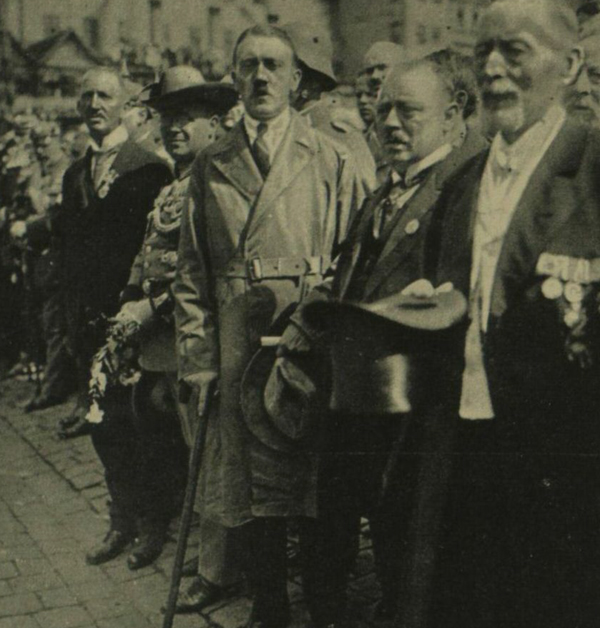Germany edges towards ‘revolution’ amidst economic chaos and a rise in extremist nationalism
Bavaria, 2 October 1923 - Martial law was proclaimed across Germany amidst growing nationalist unrest and a declaration by the Government of Bavaria that the Treaty of Versailles was no longer binding.
According to a special correspondent with the Evening Standard newspaper, events in Germany are moving in the direction of a serious crisis. ‘Everybody in the country foresees a revolution’, the correspondent claims. ‘No one knows a way out. Deep pessimism is universal… a revolutionary outbreak in Germany would of course have far-reaching effects and would impact across the continent.’
The Bavarian government has issued a statement claiming that the Treaty of Versailles had been ‘broken by the Invading Powers’, a reference to the invasion by French and Belgian troops of the Ruhr region in January this year as a means of extracting reparations.
In an effort to maintain order within its own state, the Bavarian government has banned all political meetings and moved additional troops into Munich, the Bavarian capital, from other districts. This follows a refusal on the part of Herr Adolf Hitler, who is being described as the ‘would-be Mussolini of Bavaria’, to give an assurance that, if granted approval to hold meetings of his National Socialist group, that they would be conducted in an orderly manner.
The Bavarian premier, Dr. Von Knilling, is nevertheless confident that extremist demonstrations will be kept in check and has appointed Dr. Von Kahr as Commissioner-General precisely because of his influence with nationalist organisations in Bavaria. Since then, Herr Hitler has issued a ‘proclamation’ to the effect that he was opposed to the present dictatorship and in favour of autonomy for Bavaria within the Reich. Bavaria is the second largest state in Germany with a population of over 7 million people.
Meanwhile, in an apparent effort to maintain the unity of the Reich, the German Federal government and the heads of the Federal states, have in recent days decided to abandon a policy of passive resistance to the occupation of the Ruhr region. An official statement claims that the Prime Ministers of the German States were entirely unanimous in considering that for motives of interior policy, and particularly those of a financial order, passive resistance should be terminated.
The decision, widely regarded as a victory for France, has not been universally well received within Germany. As a result of the invasion, Germans in the Ruhr district and Rhineland have been forced to endure ‘grievous oppression’, German President, Friedrich Ebert, has claimed that, ‘More than 180,000 German men and women, old men and children, have been driven from their homes...The occupation was accompanied by numerous acts of violence.’
One positive effect of the invasion, President Ebert asserts, has been the stirring of a ‘sentiment of justice and patriotism’, which has manifested in the refusal of the people to work under ‘foreign bayonets.’ However, in an effort to cater for the distressed occupants of the regions of the Ruhr and Rhineland the Reich has experienced a severe draining of its resources and now the ‘maintenance of economic life’ in the whole of Germany is under threat.
Pathé newsreel footage showing the French occupation of the Ruhr in 1923
[Editor's note: This is an article from Century Ireland, a fortnightly online newspaper, written from the perspective of a journalist 100 years ago, based on news reports of the time.]





















